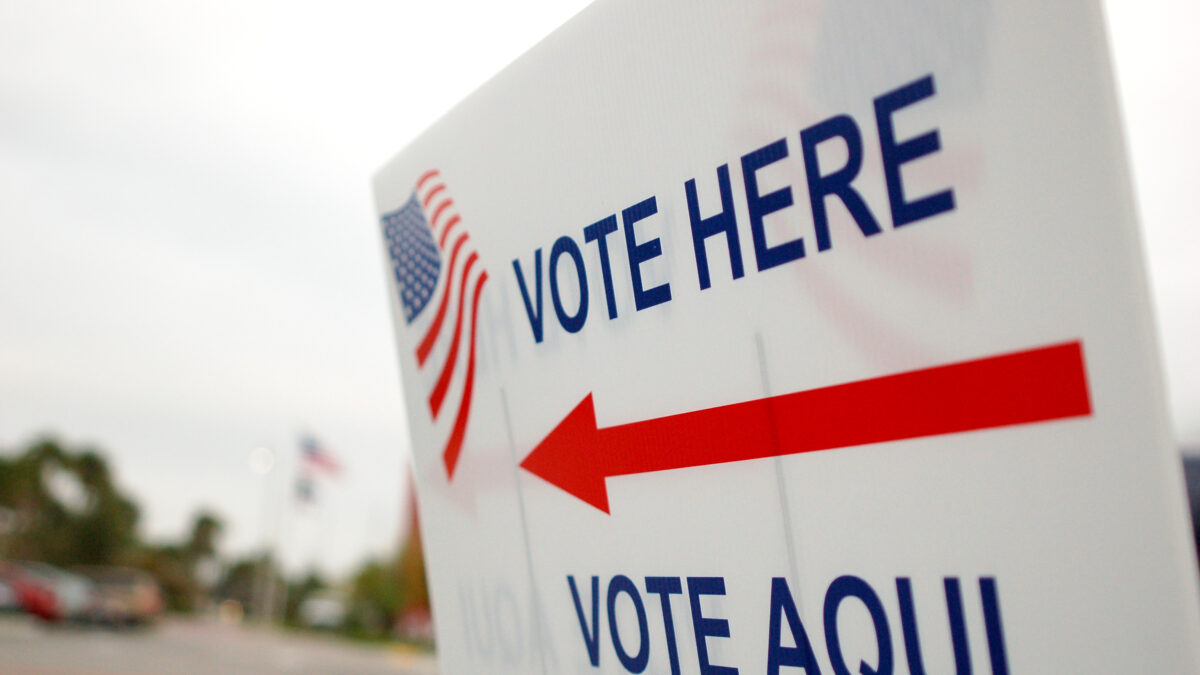In the wake of the chaos and confusion that plagued the 2020 presidential election, voters are rightly concerned about the integrity of state and local elections. As such, multiple state initiatives on the ballot this November are focused on increasing — or in some cases, decreasing — election safeguards.
Voters in seven states will be deciding on voting-related measures on November 8, with many amending their state’s constitution to enact such changes. Some states are considering similar proposals.
Arizona and Nebraska will consider ballot initiatives strengthening voter ID requirements. Louisiana and Ohio will vote on whether to ban noncitizens from participating in municipal elections. And Nevada will have to decide whether it wants to join Maine and Alaska in using ranked-choice voting for its congressional contests.
Here’s a quick primer.
Arizona
Arizona’s Proposition 309 strengthens the Apache State’s existing voter-ID laws. Voters casting a mail-in ballot would be required to add two new pieces of identification: their date of birth and a voter ID number (usually found on a driver’s license or government-issued ID number or the last four digits of social security number). Current law only requires the signature of the voter.
For voters casting a ballot in person, they can no longer present an alternative to a photo ID at the polls (a utility bill, voter registration card, etc.). A voter must present either a driver’s license or a government-issued ID.
Nebraska
Photo ID is also on the ballot in Nebraska. Initiative 432 would amend the Nebraska Constitution to require voters to present a valid form of photo identification to vote. Nebraska currently does not require a photo ID to cast a ballot.
Massachusetts
Massachusetts’ Question 4 is asking voters whether they approve of a law passed by the state’s Democratic-majority legislature — which overruled its Republican governor’s veto — that gives driver’s licenses to illegal immigrants. It also “requires” state officials “to establish procedures and regulations” to ensure illegal aliens are not automatically registered to vote when given a license. A “yes” vote would keep the law. A “no” vote would repeal it.
Louisiana
In stark contrast to Massachusetts, Louisiana has a December ballot initiative that would make it illegal for non-U.S. citizens to vote. Louisiana Amendment 1, or the Citizen Requirement for Voting Measure, would amend the Louisiana Constitution to provide that “No person who is not a citizen of the United States shall be allowed to register and vote in this state.”
Such legislation follows the controversial move by New York City to allow noncitizen residents the right to vote in municipal elections. The Public Interest Legal Foundation filed a lawsuit against the law for disenfranchising black New Yorkers. Multiple other cities across the United States have approved noncitizen voting, despite the issue being incredibly unpopular among the American public.
Ohio
Following in Louisiana’s footsteps, Ohio is also considering a ballot initiative to outlaw noncitizen voting in the Buckeye State. Ohio Issue 2, or the Citizen Voting Requirement Amendment, would prohibit local governments from allowing noncitizens to vote in municipal elections. It would amend Article V, Section 1 of the Ohio Constitution to read “Only a citizen of the United States … is entitled to vote at all elections” instead of “Every citizen of the United States … is entitled to vote at all elections.”
Michigan
Michigan’s Proposal 2 is the state version of congressional Democrats’ HR 1, which sought to institute a federal takeover of state and local elections. Proposal 2 would amend Michigan’s constitution to make radical changes to its election code.
Such changes include state-funded absentee ballot drop boxes, allowance of private money to fund elections — a.k.a. Zuckbucks 2. 0 — and giving voters the “right” to vote absentee in all future elections, enabling mass mail-in balloting to continue unabated. The initiative would also divest local canvassing boards of their authority to conduct election audits. Instead, that power would be reserved for Michigan’s Secretary of State.
If such an amendment were to pass, Michigan would come under solid Democratic rule.
Connecticut
Connecticut is one of a handful of states that still adheres to the U.S. Constitution’s vote-on-voting-day prescription, unlike 46 states (and the District of Columbia) that have scrapped it. But that could change for Connecticut, too, if Question 1, the Allow for Early Voting Amendment, passes this November. The initiative would amend the state’s constitution authorizing the state legislature to enact a law allowing early in-person voting before election day.
Nevada
The last election-related measure on the ballot this November is Nevada’s ranked-choice voting initiative (RCV). Nevada’s Question 3, or the Top-Five Ranked Choice Voting Initiative, would establish open top-five primaries and ranked-choice voting for general elections. This would apply to congressional, gubernatorial, state executive official, and state legislative elections.
As previously reported, millions of dollars in outside funding has been poured into Nevada to get its citizens to adopt ranked-choice voting, mainly from the Democratic Party and leftist activists. This is because states that adopt RCV “turn blue” and become a “disaster electorally” for Republicans, not to mention that such an electoral system disenfranchises voters and violates the Constitution’s “one person, one vote” rule.
What This Means
While some states are finally addressing voters’ concerns by introducing ballot measures aimed at strengthening their elections, others states are intent on subverting them. Voters must continue supporting election integrity while holding state and local election officials accountable. After the maladministration of the 2020 election and the left’s targeted — and ongoing — infiltration of America’s election apparatus, the fight to ensure local, state, and federal elections are free and fair will be a challenge for years to come.









